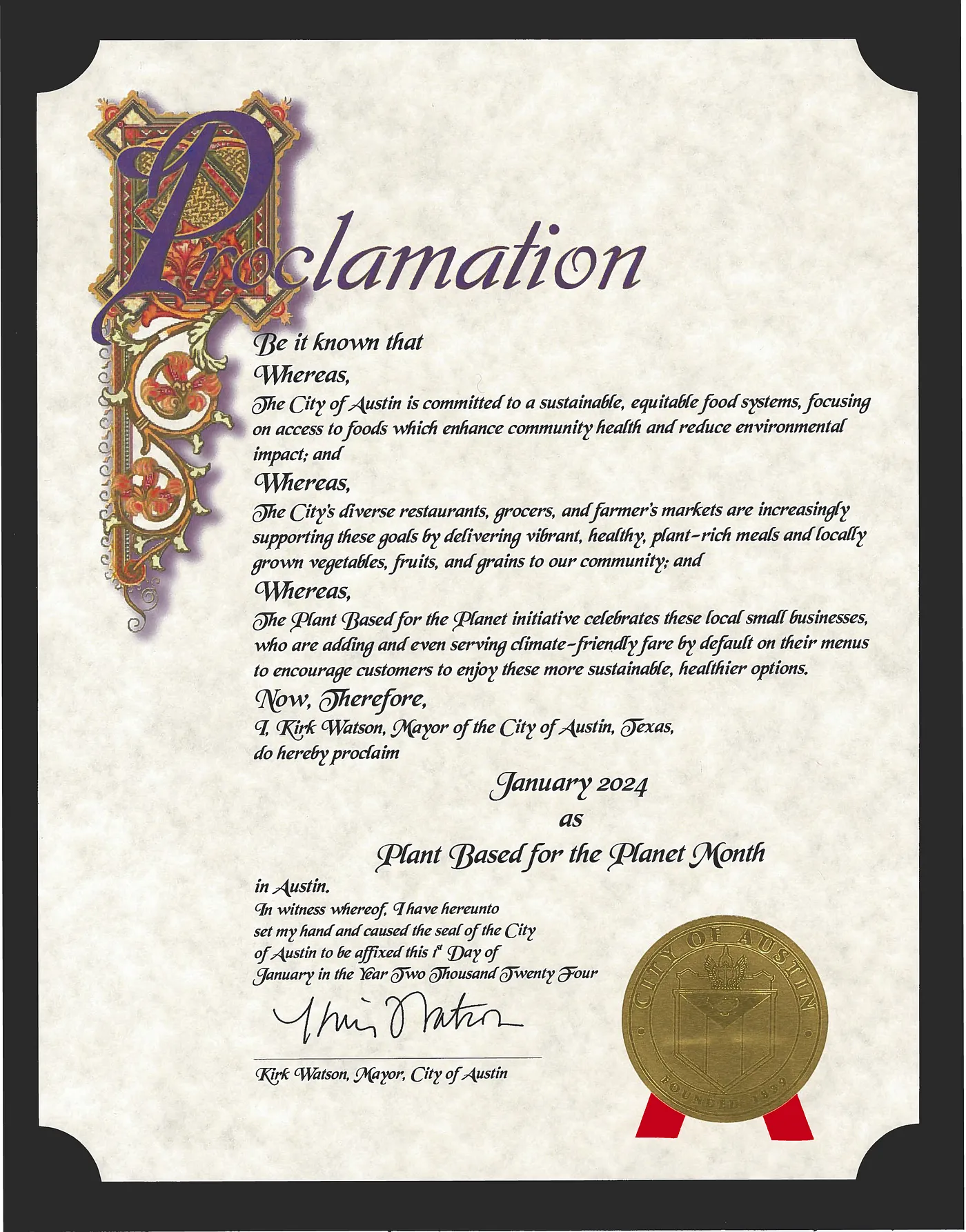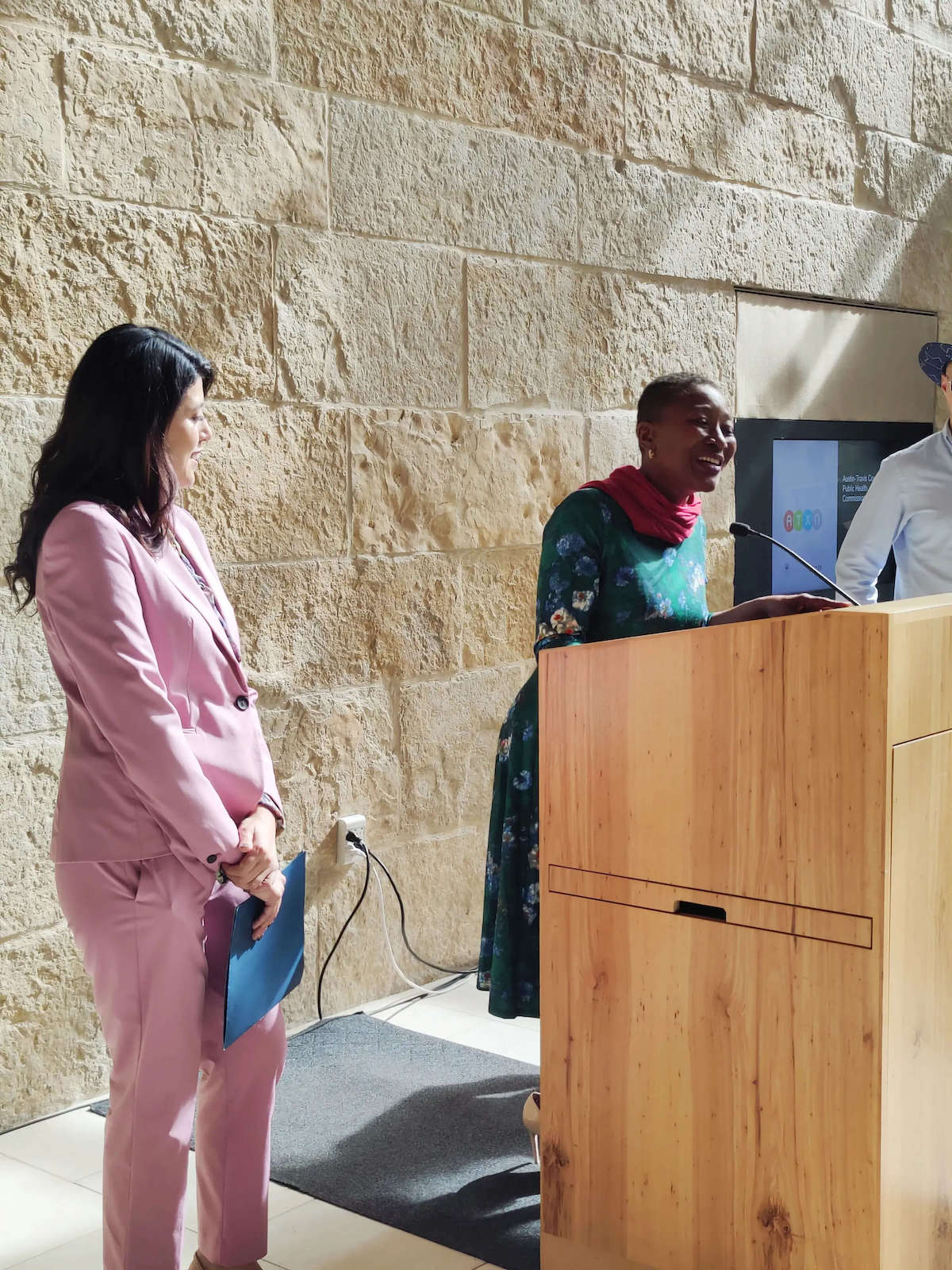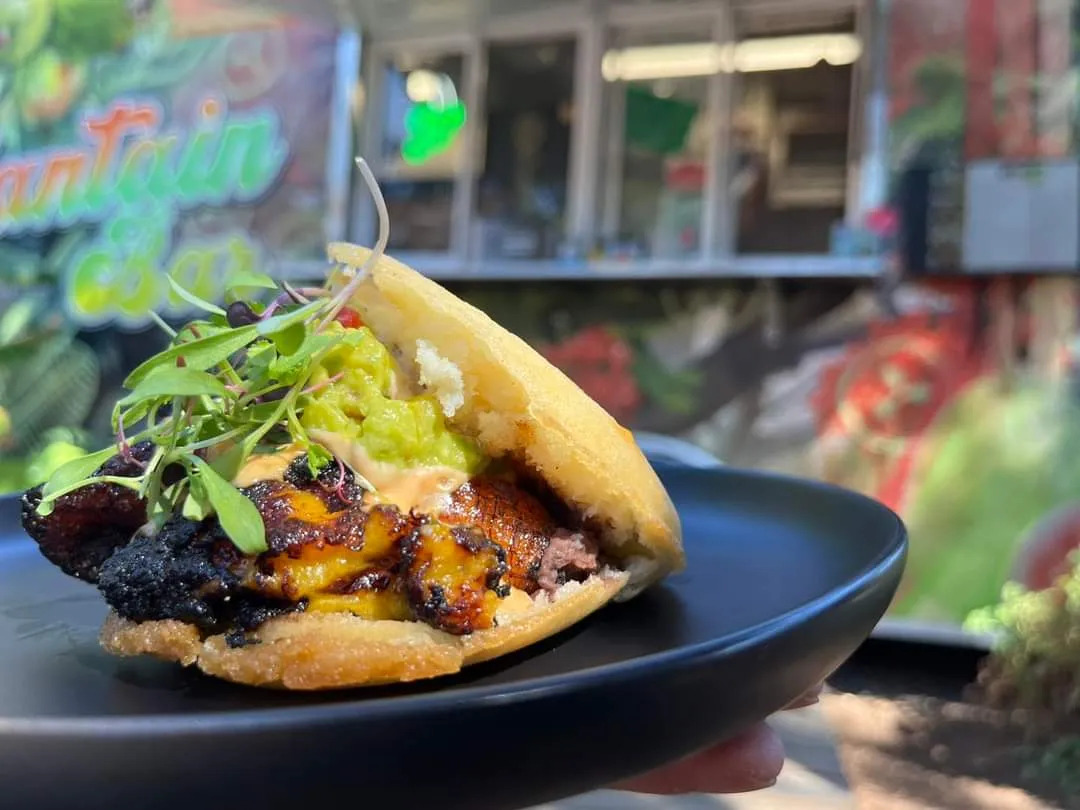In the heart of Texas, Austin City Hall has raised a full-size state flag — with a sustainable twist. The flag, designed by artist Cristina Victor, reimagines the Texas star using colorful petals, recognizing Austin’s work to herald in a plant-based food system in the heart of the state.
Representatives of Better Food Foundation (BFF) and Planted Society honored Council Members Vanessa Fuentes and Natasha Harper-Madison for the City’s trailblazing commitments — such the new Climate Equity Plan, which commits to a 50 percent reduction in procurement-related emissions and urges the community to “think beans, not beef, to reduce climate impacts and improve health.”
The flag was presented in February to Austin officials in culmination of January’s “Plant Based for the Planet” initiative, launched by Planted Society. As the flag was raised, Austin’s Office of Sustainability announced that after meeting with BFF they’ve committed to offer plant-based meals by default — with the choice to opt in to meat or dairy — nudging people toward more sustainable fare. This “DefaultVeg” practice will apply to both their catering and events.
Austin joins Denver’s Mayor’s Office of Climate Action, Sustainability, and Resiliency in going plant-based by default, along with New York City’s entire public hospital system and the Amsterdam City Council. And for Plant Based for the Planet, Austin’s Mayor Kirk Watson issued a proclamation celebrating plant-based defaults as a powerful strategy to “enhance community health and reduce environmental impact.” The proclamation was soon followed by one from Baltimore’s Mayor Brandon Scott, who called on restaurants to embrace plant-based options by default this January in his own “Veganuary” proclamation.

At the event, Council Member Fuentes elaborated on the importance of centering plant-based foods, stating, “It’s not about taking away options, but about adding healthier options. For someone like me who represents Southeast Austin, an area where we have known food deserts, this choice is important.”

Local restaurants were also recognized for how their Plant Based for the Planet plant-forward menus saved emissions equivalent to over 130,000 pounds of CO2, or driving an average-sized passenger vehicle across Texas 18,000 times. Through their ongoing commitments to more plant-forward menus, Planted Society estimates that the restaurants will save up to 2 million pounds of CO2 per year. The event culminated in a toast with vegan cupcakes provided by Mr. Natural, a long-time local Austin business.
During January’s initiative, restaurants and coffee shops were encouraged to go DefaultVeg for the month, making it easier than ever for patrons to choose a delicious plant-based meal or drink. For example, Sa-Ten used oatmilk by default on their Lumberjack Latte special, making their menu more inclusive to those with dairy intolerances or allergies while slashing their carbon and water footprints.

Other featured dishes included Fez’s veggie Arayes filled with sweet potato and eggplant; Plantain Bar’s arepa with sweet plantain, black bean purée, avocado relish, boricua sauce, and local microgreens; and Hillside Farmacy’s mushroom sugo made with local roasted oyster mushrooms on herbed polenta with fresh baked ciabatta.

The flag marks only the beginning of BFF’s collaboration with the city. As artist Cristina Victor shared, it “contains elements that are central to the visual identities to both BFF and Austin,” and was designed to foster unity in the community around long-term sustainability progress.
As the climate crisis deepens, local communities are playing a pivotal role in creating a healthy and resilient food norm — and your town could be next. Join our campaign for tips and tools to move your city leaders to adopt plant-based meals by default today!
Latest News
See All NewsWebinar: Food Systems Education
The Better Food Foundation is hosting a webinar, ‘Food Systems Education: Equipping the next generation of leaders through service learning” with Plant Futures & Switch4Good on Thursday, April 3, 2025 at 11:00 am PT / 2:00 pm ET.
Webinar: Best Practices in Plant-Based City Food Policy
The Center for Biological Diversity is hosting a webinar, ‘Best Practices in Plant-Based City Food Policy’ on Wednesday, April 9, 2025 at 4:00 pm ET / 1:00 pm PT.
These 7 Colleges Are Making Plant-Based Dining the New Norm This Fall
As the leaves change this fall, so do menus at universities nationwide — with plant-based foods rising to the top.